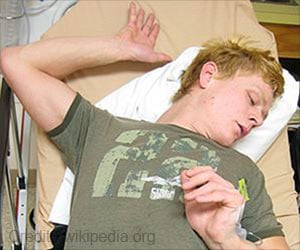
‘Deep transcranial magnetic stimulation allows deeper brain stimulation and improves symptoms of fatigue in patients with multiple sclerosis.’
Tweet it Now
The severity of MS-associated symptoms was assessed using a standardized questionnaire and the Fatigue Severity Scale (FSS). 33 study participants with fatigue received thrice-weekly sessions of dTMS for a duration of six weeks; this involves a stimulation H-coil being placed above the patient's head, which generates a magnetic field that influences nerve activity and neural circuits in the brain. A control group received a sham treatment. "We observed no serious side effects in patients treated with dTMS, and it is therefore worth stressing the tolerability of this noninvasive electrophysiological technique," says Prof. Paul, the study's principal investigator. Further, it is also worth noting that the treatment was delivered using a new type of H-coil, which had been developed specifically for use in this study. This coil permits the targeted stimulation of areas of the brain which, according to the latest research, play a major role in MS-associated fatigue. A follow-up study involving a larger number of participants is being planned. This is intended to verify the efficacy of this treatment method, and to help ensure the implementation of dTMS for MS-associated fatigue into routine clinical practice. "We are excited about the collaboration between Prof. Dr. Friedemann Paul and his team at Charité's NeuroCure and Brainsway for studying the use of our patented Deep TMS technology for the benefit of MS patients, a new neurological field for us. These promising results of relieving the very hard to treat fatigue symptoms in MS, brings a new hope for being able to provide a solution for the many patients who need it." Says Ronen Segal, CTO of Brainsway LTD.
Source-Eurekalert















